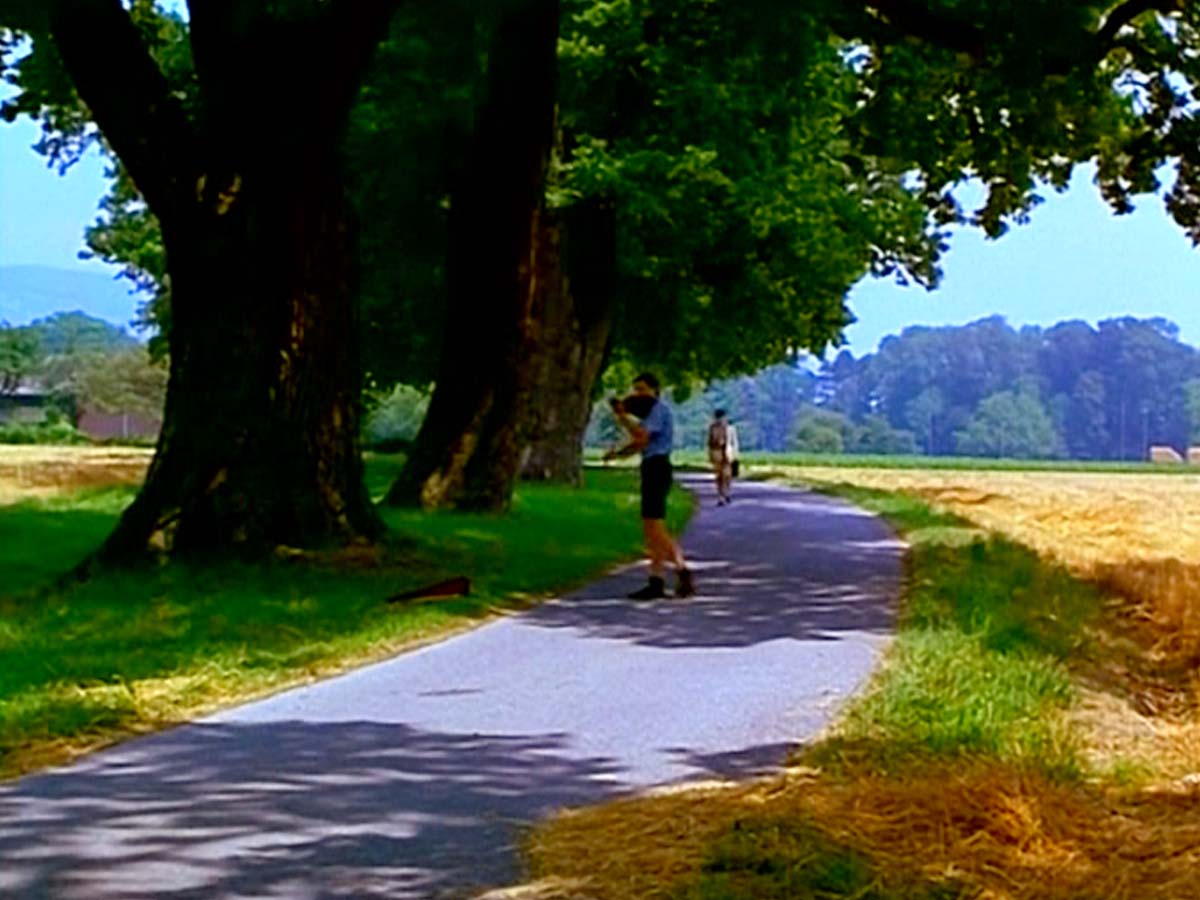
De l’origine du XXIe siècle
At the turn of the century, French-Swiss idiosyncratic filmmaker Jean-Luc Godard was invited by the Cannes Film Festival to make a film to open the festival, “commemorating cinema entering its second full century.” Godard delivered De l’origine du XXIe siècle: a fifteen-minute barrage of re-edited footage of wars and Nazi atrocities, interspersed with clips of Godard’s own À bout de souffle.
The film is at once an apocalyptic prophecy of a century in its infancy, as well as the burial of a stillborn history. A voice-over quotes from various texts, while images of fiction films such as Kubrick’s The Shining and Dreye’s Vampyr (1932) roll across the screen, interspersed with newsreel footage about the war in Vietnam, Lenin’s funeral, and Ceausescu’s hanging. In short, an impressive stream of images that succinctly summarises a (first) century of (film) history.
It is a telling work of Godard’s more militant form of filmmaking, which especially colored his oeuvre from the 1970s onwards.
R(a/u)pture’s vision is to choose works according to their spaciousness and vice versa, so that the environment of the screening contributes to the viewer’s experience, creating a haptic film experience. This film screening is in the presence of Devin Horna, who will discuss his literary sources.

